Discover the incredible probiotic benefits for men and women. Improve digestion, boost immunity, and enhance overall health.
Probiotics are beneficial live microorganisms, often referred to as “good bacteria,” that reside in our gastrointestinal tract. They play a crucial role in maintaining a balanced gut environment and supporting various bodily functions. Common probiotic strains include Lactobacillus and Bifidobacterium.
Did you know that the gut is often referred to as the “second brain”? It’s true! The gut and the brain are interconnected through a complex network known as the gut-brain axis. Probiotics can influence this axis positively, leading to improved mental health and reduced stress and anxiety.

Probiotic Benefits
Improving Health for All Genders
I. Probiotics for Digestive Health
- One of the primary benefits of probiotics is their impact on digestive health.
- They help break down food, synthesize vitamins, and prevent the growth of harmful bacteria.
- Probiotics can alleviate conditions such as irritable bowel syndrome (IBS), constipation, and diarrhea.
II. Boosting the Immune System
- A robust immune system is essential for warding off infections and diseases.
- Probiotics have been shown to enhance the body’s immune response, reducing the risk of infections and promoting overall health.
III. Probiotics and Weight Management
- For those looking to manage their weight, probiotics can be a valuable ally.
- Some probiotic strains have been associated with weight loss and a reduction in belly fat.
- However, it’s essential to combine probiotics with a balanced diet and regular exercise for optimal results.
IV. Probiotics and Skin Health
- Healthy skin goes beyond just skincare products.
- Probiotics can influence the skin’s microbiome, leading to improved complexion and reduced acne.
- They may also help soothe skin conditions such as eczema and rosacea.
Probiotic Benefits For Men
Men can also experience unique benefits from probiotic consumption. Probiotics have been linked to improved sperm health and may help reduce the risk of prostate issues. Furthermore, they can aid in mitigating symptoms of chronic conditions such as inflammatory bowel disease (IBD).
I. Improved Sperm Health:
- Probiotics can positively impact male fertility by promoting better sperm health.
- Studies have suggested that certain probiotic strains may enhance sperm count, motility, and morphology, which are essential factors for successful conception.
Read more : How to Boost Testosterone in Men – Do Even After 40
II. Reduced Risk of Prostate Issues:
- Probiotics may play a role in reducing the risk of prostate-related problems.
- Prostate issues, such as benign prostatic hyperplasia (BPH) or prostatitis, can be quite common in men as they age.
- Regular consumption of probiotics might help maintain prostate health and reduce the likelihood of these issues.
III. Mitigation of Inflammatory Bowel Disease (IBD) Symptoms:
- Inflammatory Bowel Disease (IBD), which includes conditions like Crohn’s disease and ulcerative colitis, can significantly impact a person’s quality of life.
- Some studies suggest that probiotics can help alleviate symptoms associated with IBD, such as abdominal pain, diarrhea, and inflammation.
IV. Balanced Gut Health:
- A healthy gut is crucial for overall well-being, and probiotics can play a significant role in maintaining gut balance.
- By promoting the growth of beneficial bacteria and suppressing harmful ones, probiotics contribute to a healthier gut environment.
V. Immune System Support:
- Probiotics can bolster the immune system, which is essential for defending the body against infections and diseases.
- A strong immune system can help men stay healthy and better equipped to fight off illnesses.
VI. Mental Health Benefits:
- Good gut health is closely linked to mental health.
- Probiotics can influence the gut-brain axis, positively impacting mood and cognitive function.
- This can help reduce stress and anxiety, leading to improved mental well-being.
VII. Heart Health:
- Certain probiotics have been associated with potential cardiovascular benefits.
- They may help lower blood pressure and cholesterol levels, reducing the risk of heart disease.
It’s essential to note that individual responses to probiotics can vary, and the specific benefits experienced may depend on the probiotic strains consumed and individual health factors.
As with any health-related concerns, consulting with a healthcare professional is advisable to determine the most suitable probiotic regimen for individual needs.
Women’s Probiotic Benefits
Probiotics offer specific advantages for women’s health. They can help prevent and treat urinary tract infections (UTIs), yeast infections, and bacterial vaginosis. Additionally, probiotics play a vital role in maintaining vaginal health and pH balance.
I. Prevention and Treatment of Urinary Tract Infections (UTIs):
- UTIs are common in women and can cause discomfort and pain.
- Probiotics, especially certain strains of Lactobacillus, have been shown to help prevent UTIs by maintaining a healthy balance of bacteria in the urinary tract.
- They can also assist in reducing the recurrence of UTIs in women who are prone to them.
II. Management of Yeast Infections:
- Yeast infections, often caused by an overgrowth of Candida fungus, can lead to itching, irritation, and discomfort in the vaginal area.
- Probiotics can aid in managing yeast infections by restoring the natural balance of microorganisms in the vagina and inhibiting the growth of harmful yeast.
Read more : Yeast Infection – 5 Steps Natural Solutions Within 12 Hrs.
III. Treatment of Bacterial Vaginosis (BV):
- Bacterial vaginosis is a common vaginal infection resulting from an imbalance of bacteria in the vagina.
- Probiotics, particularly those containing Lactobacillus strains, can help treat BV by promoting the growth of beneficial bacteria and restoring vaginal pH to a healthy level.
Read more : Bacterial Vaginosis Treatment 100% Effective and Scientifically Methods
IV. Maintenance of Vaginal Health:
- Probiotics contribute to overall vaginal health by supporting the growth of beneficial bacteria.
- A balanced vaginal microbiome helps maintain an acidic pH level, which is essential for inhibiting the overgrowth of harmful bacteria and preventing infections.
Read more : Pelvic Organ Prolapse – Natural Treatment Without Medicine
V. Supporting a Healthy Pregnancy:
- During pregnancy, women experience changes in their hormone levels and immune system, which can sometimes lead to an increased risk of infections.
- Probiotics can be beneficial during pregnancy as they may help prevent urinary tract infections and support a healthy vaginal environment.
VI. Reducing Vaginal Discomfort:
- Probiotics can help alleviate vaginal discomfort and irritation caused by imbalances in the vaginal microbiota.
- By promoting a healthy environment, probiotics can provide relief from itching, burning, and other uncomfortable symptoms.
VII. Immune System Support:
- Probiotics play a role in supporting the immune system, which is essential for pregnant women and women of all ages.
- A strong immune system helps the body fight off infections and stay healthy.
VIII. Colon Health:
- While often associated with women’s health, probiotics can also have a positive impact on colon health.
- They can help maintain regular bowel movements and reduce the risk of gastrointestinal issues like constipation and bloating.
It’s important to remember that each woman’s body is unique, and the effectiveness of probiotics may vary from person to person. If a woman is experiencing persistent vaginal issues or health concerns, it’s best to consult with a healthcare professional to determine the most suitable probiotic regimen for her specific needs.
Incorporating Probiotics into Your Diet
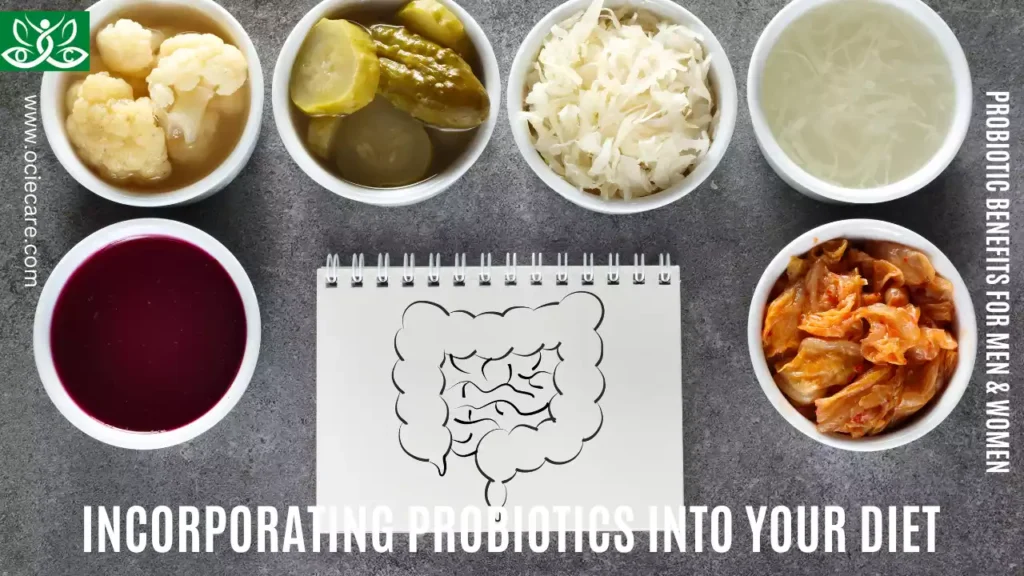
Incorporating probiotics into your diet is a simple and effective way to promote optimal gut health. Probiotics are live beneficial microorganisms that provide numerous health benefits when consumed regularly. Here are some ways to include probiotics in your daily diet:
I. Fermented Foods:
- One of the easiest and tastiest ways to get probiotics is through fermented foods.
- Yogurt, especially varieties with live and active cultures, is a popular choice.
- Look for plain, unsweetened yogurt to avoid added sugars.
- Kefir, a fermented milk drink, is another excellent option that contains a diverse range of probiotic strains.
- Additionally, foods like sauerkraut, made from fermented cabbage, and kimchi, a spicy fermented vegetable dish, are rich sources of probiotics.
- Including a variety of these fermented foods in your diet can help maintain a diverse and healthy gut microbiome.
II. Probiotic Supplements:
- If you find it challenging to consume enough probiotic-rich foods, dietary supplements are available.
- Probiotic supplements come in various forms, including capsules, tablets, powders, and gummies.
- When choosing a supplement, opt for a product with multiple strains of probiotics to ensure a broader range of benefits.
III. Kombucha:
- Kombucha is a fermented tea drink that has gained popularity for its probiotic content.
- It’s a refreshing and fizzy beverage available in various flavors.
- When purchasing kombucha, make sure it contains live cultures and has not undergone excessive pasteurization, which can kill the beneficial bacteria.
IV. Miso:
- Miso is a traditional Japanese seasoning made from fermented soybeans and grains like rice or barley.
- It is commonly used to make miso soup, which is not only delicious but also a source of probiotics.
V. Pickles:
- Pickled cucumbers, carrots, and other vegetables can be a great addition to your diet.
- Opt for naturally fermented pickles rather than those made with vinegar, as the former contain live probiotics.
VI. Tempeh:
- Tempeh is a soy-based product made from fermented soybeans.
- It’s a versatile and nutritious protein source that can be used in various dishes, adding a boost of probiotics to your meals.
VII. Fermented Cheeses:
- Some varieties of cheese, such as gouda and cheddar, undergo fermentation and can contain probiotics.
- Look for cheese labeled as “raw” or “aged” to maximize probiotic content.
VIII. Prebiotic Foods:
- In addition to consuming probiotics, incorporating prebiotic foods into your diet can help support their growth and activity in the gut.
- Prebiotics are non-digestible fibers that feed the beneficial bacteria in your gut.
- Foods like bananas, onions, garlic, asparagus, and whole grains are excellent sources of prebiotics.
Remember to introduce probiotic-rich foods gradually into your diet, especially if you are new to consuming fermented foods. This will allow your digestive system to adjust to the changes.
If you have any underlying health conditions or concerns, it’s always best to consult with a healthcare professional before making significant dietary changes. By embracing probiotics and a variety of gut-friendly foods, you can enhance your gut health and overall well-being.
Recommended Probiotics for Men and Women
When it comes to recommended probiotics for both men and women, it’s essential to consider strains that offer specific benefits for their respective health needs. Here are some probiotic strains that are generally beneficial for both genders:
I. Lactobacillus acidophilus:
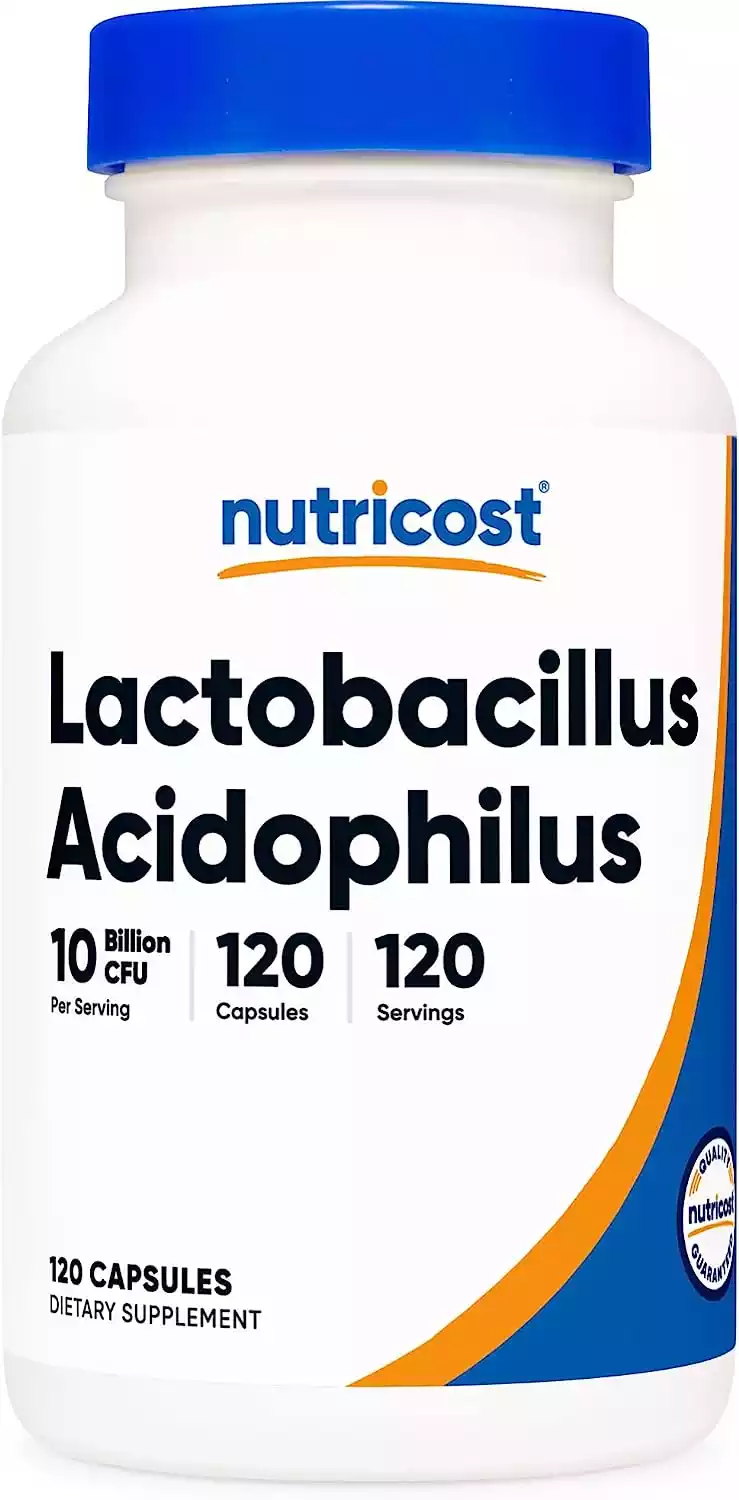
CLICK HERE TO BUY : Nutricost Lactobacillus Acidophilus 10 Billion CFU, 120 Vegetarian Capsules
- This strain is well-known for its digestive benefits and is helpful in maintaining gut health.
- It also supports the immune system and may assist in preventing urinary tract infections.
II. Bifidobacterium bifidum:
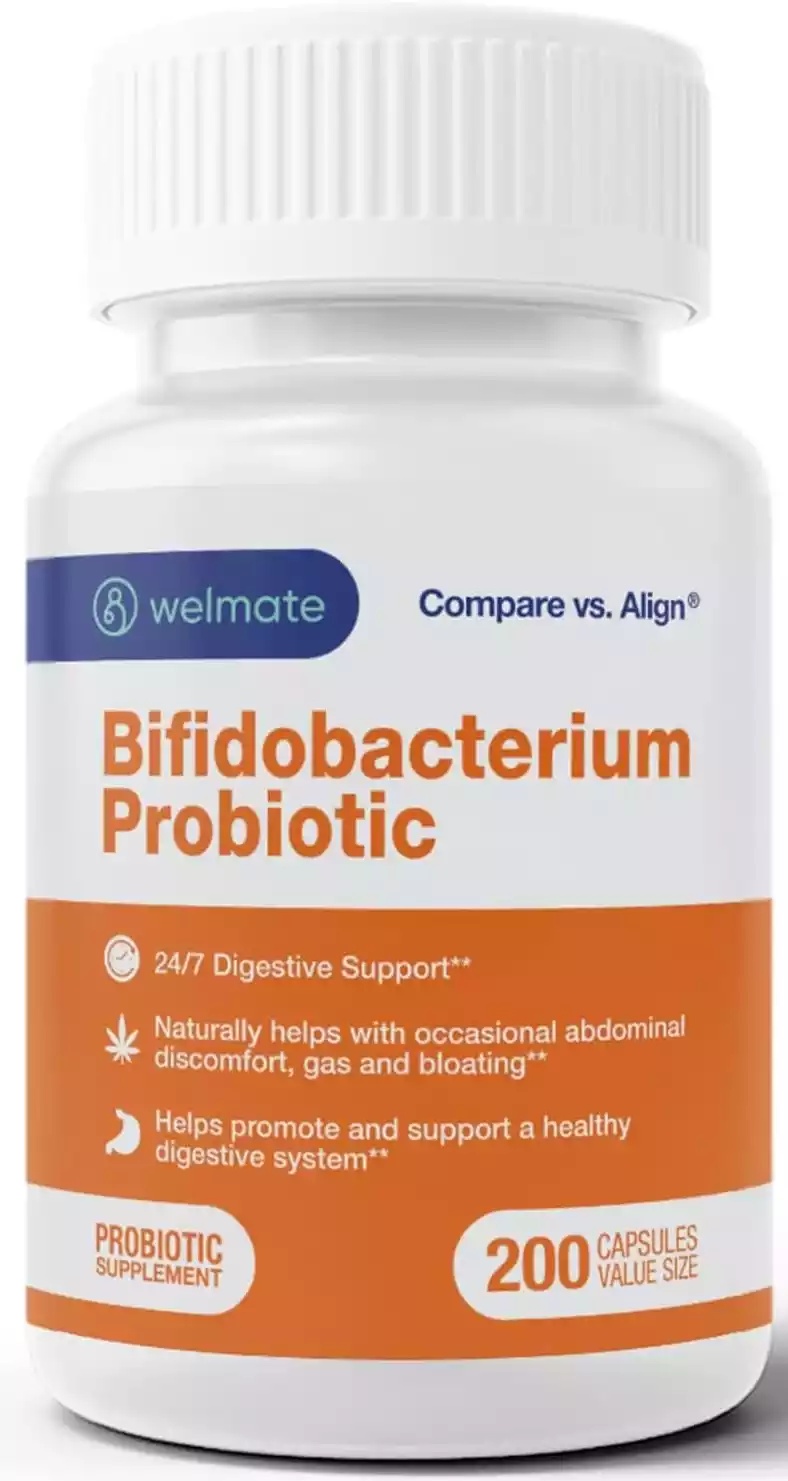
CLICK HERE TO BUY : WELMATE Bifidobacterium | Probiotic Supplement
- Another strain that aids in digestion and supports overall gut health.
- It may also help reduce inflammation and improve immune function.
III. Lactobacillus rhamnosus:
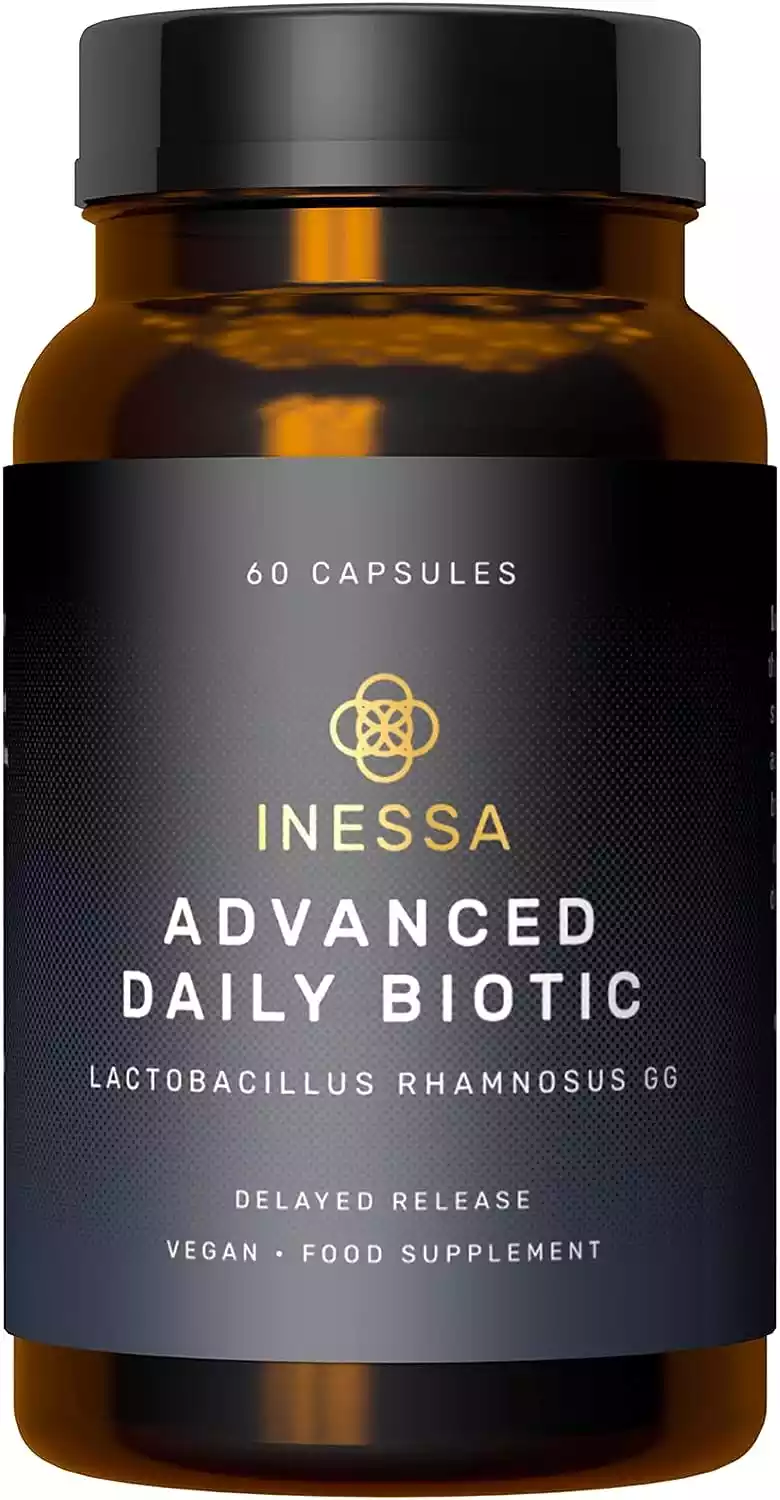
CLICK HERE TO BUY : Inessa Advanced Daily Biotic, Probiotics Lactobacillus Rhamnosus (LGG)
- This strain is often recommended for women as it can help prevent and manage urinary tract infections and bacterial vaginosis.
- It also supports digestive health.
IV. Lactobacillus reuteri:
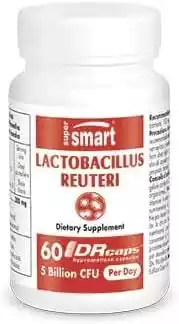
CLICK HERE TO BUY : Supersmart – Lactobacillus Reuteri 5 Billion CFU per Day
- Known for its ability to improve oral health and support digestive wellness.
- It may also help reduce symptoms of colic in infants.
V. Bifidobacterium longum:
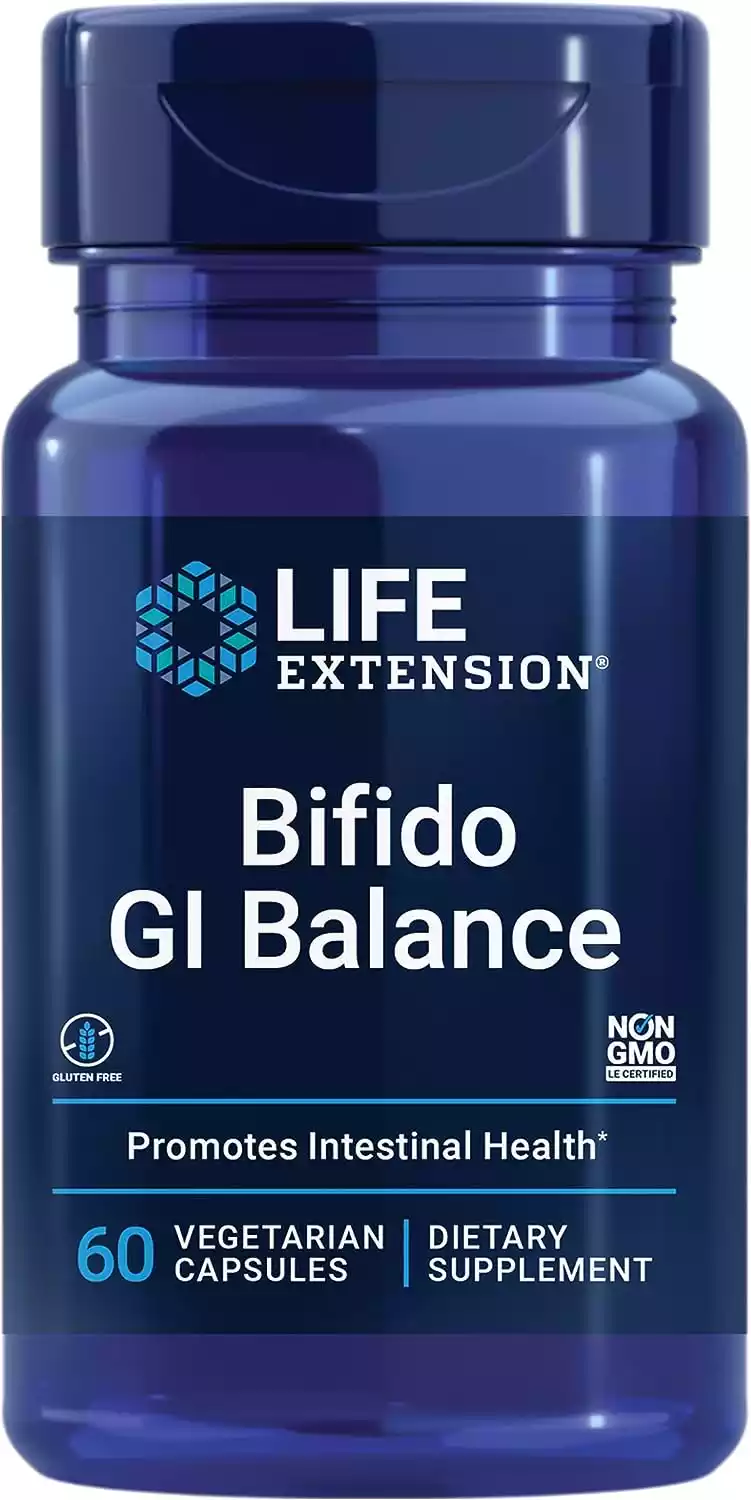
CLICK HERE TO BUY : Probiotics Bifidobacterium Longum BB536 (2 Billion CFU) Supplement
- This strain is beneficial for both men and women as it aids in digestion, supports the immune system, and may alleviate symptoms of irritable bowel syndrome (IBS).
VI. Saccharomyces boulardii:
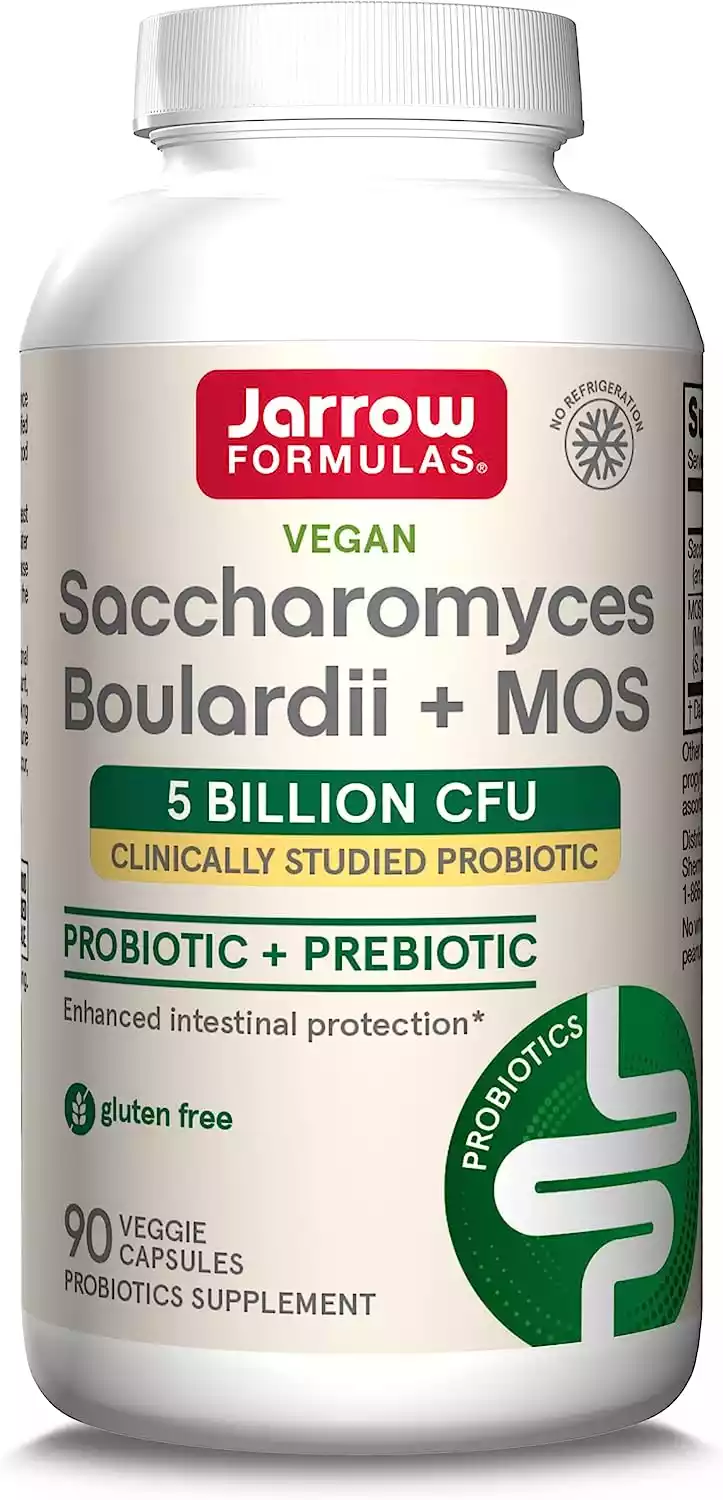
CLICK HERE TO BUY : Jarrow Formulas Saccharomyces Boulardii + MOS 5 Billion CFU
- While not a bacterial strain, S. boulardii is a beneficial yeast that can help restore gut balance and prevent diarrhea caused by antibiotics or infections.
It’s important to note that individual responses to probiotics can vary, and the best probiotic supplement for one person may not be the same for another. When choosing a probiotic, consider factors like age, overall health, specific health concerns, and the strains’ targeted benefits.
Affiliate Disclosure:
- This page contains affiliate products. When you click on links to purchase weight gain supplements, we may earn a commission at no additional cost to you. Your support helps us continue providing valuable content. Thank you for your understanding and trust in our recommendations.
Are All Probiotics the Same?
Are All Probiotics the Same? Not quite. Probiotics come in a diverse array of strains, each with its unique characteristics and health benefits. While all probiotics aim to support gut health, they can have varying effects based on individual factors and specific health needs.
I. Different Strains, Different Benefits:
- Various probiotic strains belong to different bacterial families, such as Lactobacillus and Bifidobacterium.
- Each strain has distinct properties and can target specific health concerns.
- For example, Lactobacillus rhamnosus is known for its efficacy in preventing urinary tract infections, while Bifidobacterium longum aids in relieving irritable bowel syndrome (IBS) symptoms.
- Understanding the strains’ differences allows you to choose the ones most relevant to your well-being.
II. Targeted Support:
- Probiotics can offer targeted support for various aspects of health.
- Some strains focus on improving digestion, while others boost the immune system, promote skin health, or even positively influence mental well-being.
- Determining your health priorities can guide you in selecting probiotics that align with your specific needs.
III. Individual Responses:
- Each person’s gut microbiome is unique, influenced by factors such as genetics, diet, lifestyle, and medical history.
- Consequently, the same probiotic strain may yield different outcomes in different individuals.
- What works exceptionally well for one person might not have the same impact on another.
- Considering your body’s responses and preferences is crucial in finding the most suitable probiotic supplement for you.
IV. Combinations and Synergies:
- Some probiotic products contain multiple strains in combination.
- These formulations are designed to offer a broader spectrum of benefits.
- The synergistic effects of different strains can enhance overall gut health and wellness.
- When choosing a multi-strain probiotic, look for one that aligns with your health goals.
V. Consulting a Healthcare Professional:
- If you have specific health concerns or underlying medical conditions, it’s prudent to seek guidance from a healthcare professional or a registered dietitian.
- They can analyze your health history and recommend probiotics tailored to your individual needs.
While probiotics share the common goal of supporting gut health, they are not one-size-fits-all. Different strains offer diverse benefits, and their effectiveness varies based on individual factors.
To make the most of probiotics, consider the unique properties of each strain, determine your specific health priorities, and be attentive to your body’s responses. By doing so, you can select the right probiotic supplement to address your health needs and embark on a journey towards improved well-being.
Safety and Precautions
- Probiotics are generally safe for most people, but some individuals may experience mild side effects such as bloating or gas.
- If you have a compromised immune system or a serious underlying health condition, consult a healthcare professional before using probiotics.
Final Thoughts on Probiotic Benefits for Men & Women
In conclusion, probiotics are a powerhouse of health benefits for both men and women. These beneficial microorganisms, often referred to as “good bacteria,” have a profound impact on our overall well-being.
Here’s a recap of the advantages that probiotics offer:
I. Improved Digestion:
- Probiotics support a healthy digestive system by aiding in the breakdown of food and promoting nutrient absorption. They can alleviate digestive issues like irritable bowel syndrome (IBS), constipation, and diarrhea, leading to better gastrointestinal health.
II. Strengthened Immunity:
- A robust immune system is essential for defending the body against infections and diseases. Probiotics play a significant role in enhancing the immune response, reducing the risk of infections, and supporting overall health.
III. Better Skin Health:
- Probiotics influence the skin’s microbiome, promoting a balanced and healthy environment. This can result in improved complexion, reduced acne, and relief from skin conditions like eczema and rosacea.
IV. Enhanced Mental Well-Being:
- The gut-brain connection highlights the significant impact of probiotics on mental health. By positively influencing the gut-brain axis, probiotics can reduce stress and anxiety, contributing to better mental well-being.
V. Heart Health Benefits:
- Some probiotic strains have been associated with potential cardiovascular benefits. They may help lower blood pressure and cholesterol levels, supporting heart health.
VI. Unique Benefits for Women:
- Probiotics offer specific advantages for women’s health, such as preventing and treating urinary tract infections (UTIs), yeast infections, and bacterial vaginosis. They also play a crucial role in maintaining vaginal health and pH balance.
VII. Unique Benefits for Men:
- Men can also experience unique benefits from probiotic consumption, including improved sperm health, reduced risk of prostate issues, and support in managing chronic conditions like inflammatory bowel disease (IBD).
VIII. Gut-Brain Axis:
- The communication between the gut and the brain is a critical aspect of overall health. Probiotics influence this axis positively, demonstrating their role in the complex interplay between physical and mental well-being.
Incorporating probiotics into your diet through fermented foods like yogurt, kefir, sauerkraut, kimchi, and probiotic supplements can lead to a healthier gut microbiome and a more resilient immune system. Remember that individual responses to probiotics may vary, and it’s essential to choose the right probiotic strains based on your specific health needs.
Embrace the power of probiotics, and by doing so, you can take a proactive step towards improving your digestion, immunity, skin health, and mental outlook, contributing to a happier and healthier life overall. As always, if you have any concerns or existing health conditions, consult with a healthcare professional to determine the best probiotic regimen tailored to your individual requirements.
FAQs
Q: Can probiotics help with weight loss?
A: Certain probiotic strains have been associated with weight loss, but they should be complemented with a healthy lifestyle.
Q: Are probiotics safe for pregnant women?
A: In general, probiotics are safe for pregnant women, but it’s best to consult with a healthcare professional before use.
Q: Can probiotics replace antibiotics?
A: Probiotics are not a substitute for antibiotics. However, they can be used alongside antibiotics to support gut health.
Q: Can children take probiotics?
A: Yes, probiotics are generally safe for children, but it’s advisable to consult with a pediatrician before giving them probiotic supplements.
Q: How long should I take probiotics?
A: The duration of probiotic use depends on individual health goals. Some may take them continuously, while others use them periodically.